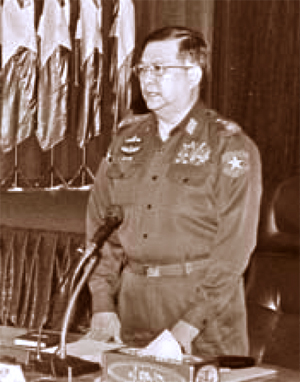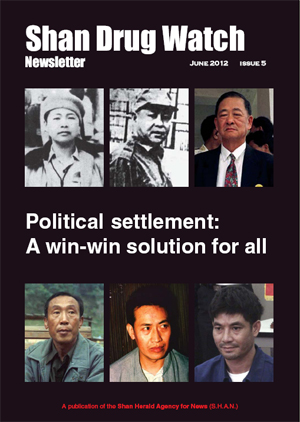Last Friday, Lt-Gen Ko Ko, military-appointed home minister and Chairman of the Central Committee for Drug Abuse Control (CCDAC), during a meeting with representatives from UN Office of Drugs and Crime (UNODC), US Drug Enforcement Administration (DEA), Thailand’s Office of Narcotics Control Board (ONCB) and Australian Federal Police (AFP), announced that Naypyitaw’s 15 year masterplan (1999-2014) drugs would be extended 5 years to 2019 “to maintain the momentum of the war on drugs.”

While President Thein Sein’s government deserves high praise for the courage to face up to reality, it should be added that the statement didn’t quite come as a surprise. (The only surprise is that there was no mention of the National Narcotics Control Commission of China.)
Many observers who have been following developments in Burma have long concluded that the target dates – 2014 for Burma and 2015 for Asean – were far from being realistic.
Even China, the country that has conducted more than 200 crop substitution programs, admitted last June its efforts had not been able to keep up with opium cultivation that was on the increase since 2007, according to China Daily.
The home minister also spoke about “the need for educative activities to reduce drug abuse” and “called for utmost collaborative efforts of all the groups” for drug eradiation.
 He however failed to mention that only a political settlement among the country’s warring groups would bring forth the “utmost collaborative efforts” needed for the successful resolution of the drug problem in Burma.
He however failed to mention that only a political settlement among the country’s warring groups would bring forth the “utmost collaborative efforts” needed for the successful resolution of the drug problem in Burma.



